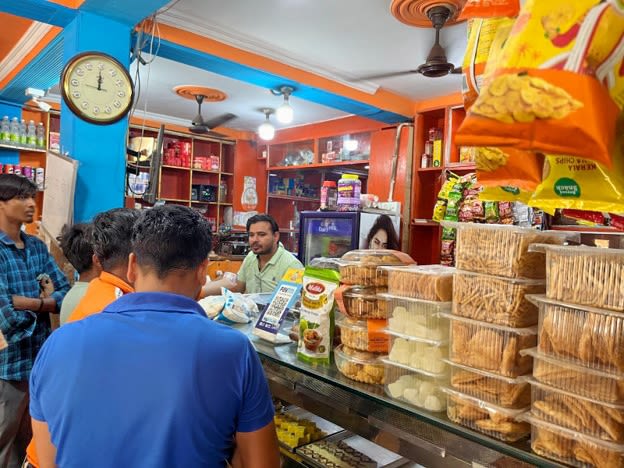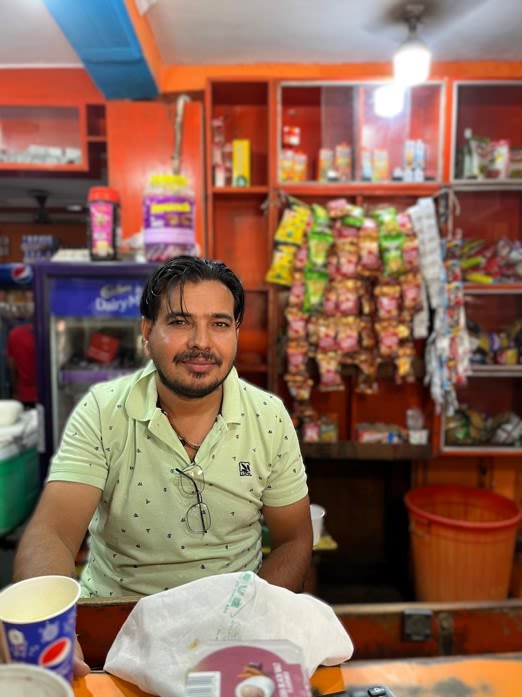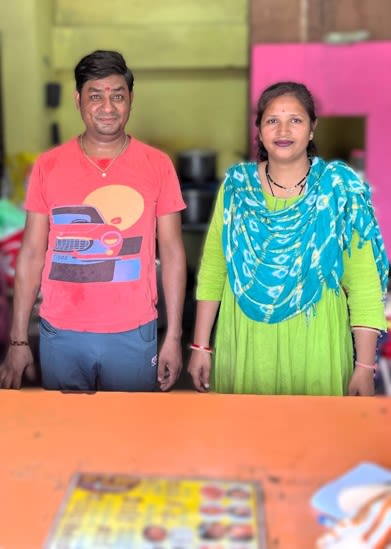From Stability to Growth: The Ripple Effects of Credit for Nano Entrepreneurs
Sharon Buteau

Delhi: A busy day at Shyam's shop.
Delhi: A busy day at Shyam's shop.
Shyam, a small shop owner, faced the challenge of restarting his business post-pandemic without a formal credit history. However, he successfully secured a small loan from a Non-Banking Financial Company (NBFC) using alternative methods to assess his business's creditworthiness. The NBFC did not rely solely on traditional credit scores or formal credit history to evaluate whether Shyam could repay the loan. Instead, they considered other non-traditional data points to decide on granting him the loan. The loan enabled Shyam to stock his shop with fresh inventory and acquire essentials like a refrigerator. As a newcomer to formal credit, this support not only revitalized his business but also brought him closer to securing a home loan, providing a much-needed sense of security for his family's future.
Shyam’s story is not unique but is one of many tales of nano entrepreneurs contributing to India’s growth story.
World MSME Day shines a spotlight on the crucial role of nano enterprises, often overlooked but vital in driving local economic growth. Despite their significant contributions, many nano entrepreneurs struggle to access formal finance due to a lack of credit history and inadequate financial infrastructure.
To bridge this gap, researchers at LEAD are collaborating with the Michael & Susan Dell Foundation and its portfolio companies on a three-year longitudinal study with over 2,250 nano enterprises across the country. Interim insights are emerging from this study on how tailored financial solutions can empower nano entrepreneurs.
Some interim findings from the study indicate positive outcomes such as:
- Enterprises across all loan ticket sizes experienced increased turnover and profitability from baseline to endline.
- A significant portion of additional profits was invested in improving business establishments. Over 25% of enterprises transitioned from operating within household premises to external premises.
- There has been a notable rise in enterprises using bank accounts for transactions, up by approximately 20%. Many businesses also formalized operations through registrations like Udhyam or other relevant business registrations.
- There is a marked increase in female employment within these enterprises, reflecting broader national trends in increased female labor force participation. These female workers are predominantly hired on fixed monthly wages, separate from family roles. Wages have also risen for both male and female workers.
- Digital adoption trends are evident, with a 30% increase in wages being paid through digital modes compared to the baseline period.
By understanding and addressing the needs of nano entrepreneurs, we can bridge the substantial credit gap they are facing—an investment that not only fuels individual success but also creates ripple effects across families and communities.
Take for example Jitendar Singh, a footwear retailer from Dewas (a town in the Indian state of Madhya Pradesh), who used his loan to diversify into handmade goods, capitalizing on the demand for quality footwear. By investing in machinery and raw materials, he scaled up production to meet wholesale demands, significantly boosting profitability.
Meanwhile, Rajani, a canteen owner in Indore (a populous city in the Indian state of Madhya Pradesh), leveraged loans to transition from a highway eatery to a bustling city restaurant. With additional financing, she secured a prime location, renovated the space, and obtained necessary licenses, marking a substantial upgrade in business operations.
Beyond business expansion, these loans have profound ripple effects on households. Nano entrepreneurs not only improve their business but also use profits to enhance family healthcare, secure better housing, and invest in household appliances. For Shyam, financial stability from his business success even enabled him to secure a home loan, ensuring improved living conditions for his family.
These stories underscore the resilience, ingenuity, and potential of India's nano entrepreneurs. By tailoring loan offerings to meet their diverse needs, financial service providers can bridge the substantial ~USD 150 billion credit gap in this segment, fueling economic growth. Investing in long-term financial relationships with nano enterprises not only strengthens local economies but also generates positive impacts for families and communities across India.
Canteen owner Rajani and her husband
Canteen owner Rajani and her husband
Author: Sharon Buteau, Executive Director, LEAD at Krea University.
The author would like to thank Diksha Singh and Vatsima Tripathi for inputs on this article.
Special thanks to the nano entrepreneurs for their time, patience, and contributions to this story. Read the baseline report for further insights. Results from the study are forthcoming.



